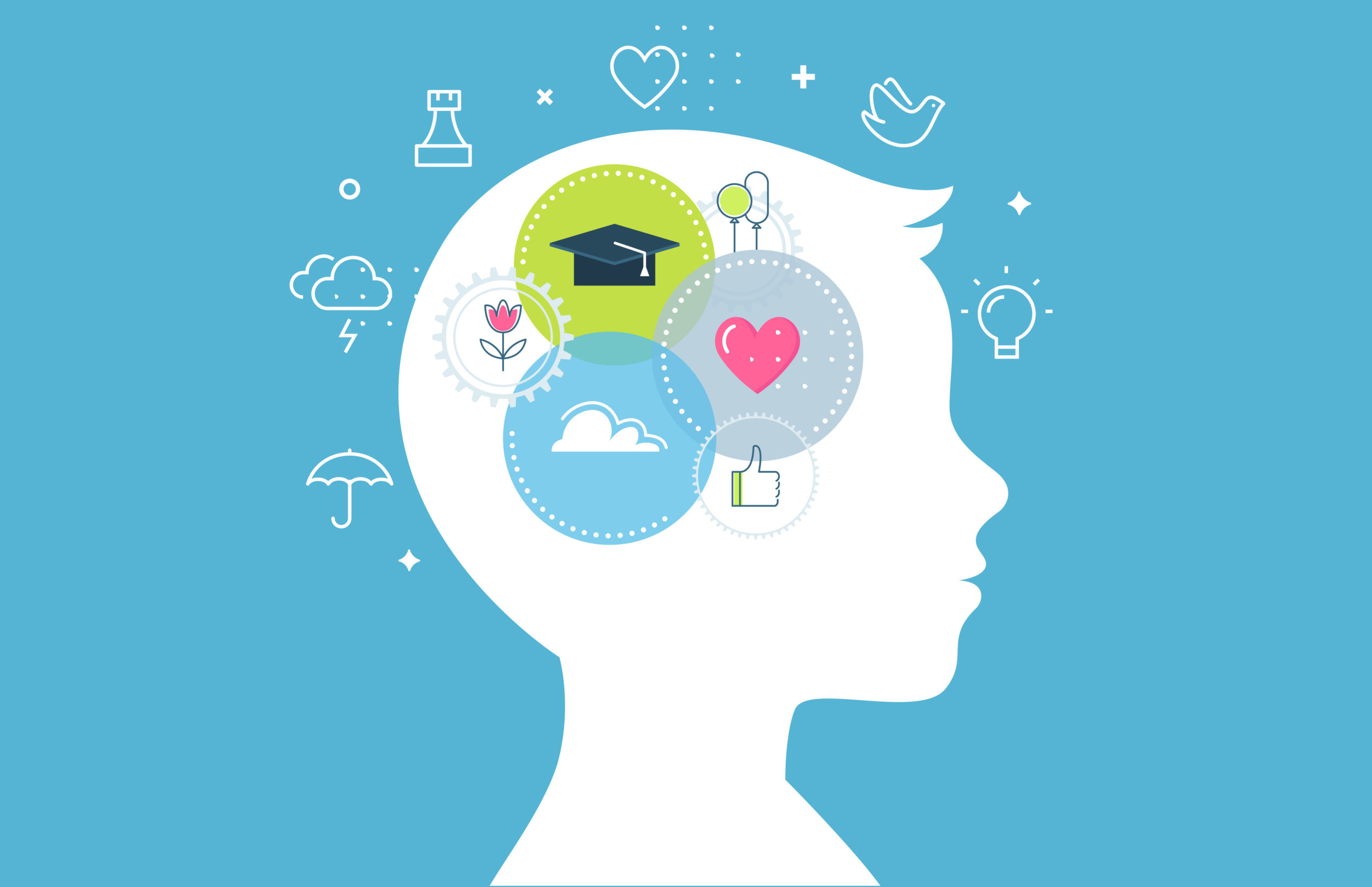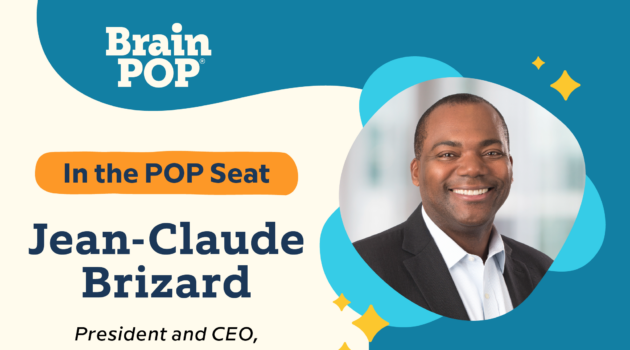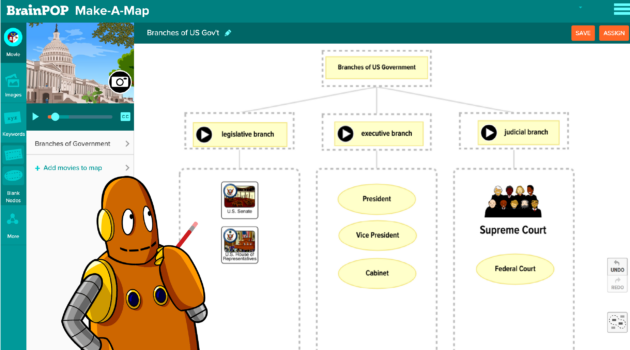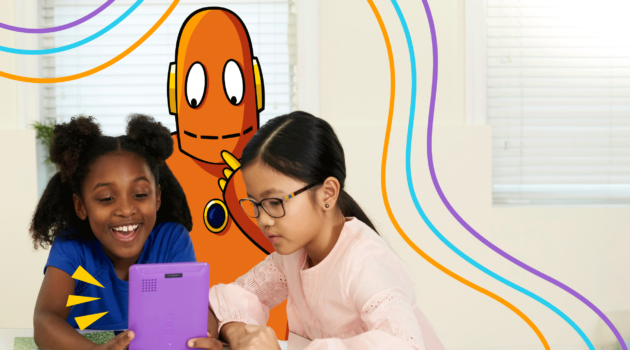Thought Leadership
Social and Emotional Learning in the Classroom, Home, and Community

Focusing on mental health is essential all year. Sometimes we need a reminder to engage in conversations about social and emotional well-being in our classrooms, communities, and at home. Given the events of this past year, it is also more important than ever to check in on our own mental health.
Social and emotional learning (SEL) builds resilience, grit, and perseverance—competencies that have been essential to thriving during the pandemic.
Whether you are a teacher, parent, or caregiver, you’ve likely been hearing a lot about social and emotional learning (SEL). The Collaborative for Social and Emotional Learning (CASEL) defines SEL as “the process through which children and adults acquire and effectively apply the knowledge, attitudes, and skills necessary to understand and manage emotions, set and achieve positive goals, feel and show empathy for others, establish and maintain positive relationships, and make responsible decisions.”
Social and emotional learning (SEL) builds resilience, grit, and perseverance—competencies that have been essential to thriving during the pandemic. But the positive effects are even more far-reaching. Research reveals links between SEL and success in school and beyond.
SEL and Self-Management
The Marshmallow Test is a classic example of a study designed to assess children’s behavioral self-management and self-control. In this test, children were told that they could get one reward now (in this case a marshmallow) or wait 15 minutes and receive two rewards. In a follow-up study 10 years later, researchers found that children who were able to wait longer (show self-control) for a greater reward earned higher SAT scores, attained higher levels of education, and were more successful adults.
A 2018 study of a larger and more diverse sample published in Psychological Science, showed only half the effect of the original study. It found that socioeconomic background, for example, may impact the results. This finding is important because it informs not only the way we think about SEL, but the approaches we take to develop social and emotional competencies in students from a variety of racial, ethnic, socioeconomic, and other diverse backgrounds.
SEL at Home
While SEL can be an effective strategy for managing challenging behavior, all children reap the benefits of building social and emotional skills—and not just in the classroom. SEL has an important place in every area of a child’s social environment: at school, in the home, and in the community. Social and emotional competencies are learned skills and also dependent on context. Whereas children may have some natural dispositional tendencies toward certain SEL competencies, they learn behavior from the adults in their lives, and through their social and cultural environments.
Parents and caregivers can provide opportunities to promote SEL through everyday interactions and experiences at home. Start with a growth mindset, recognizing childrens’ existing strengths, while recognizing that their SEL competencies can grow with hard work and intentional development. Learn from setbacks together, rather than using them to assess children.
Participating in mindfulness activities as a family is a fun and engaging way to incorporate SEL into your daily routine. The activity “Rose, Bud, and Thorn” is one easy example. At the dinner table, each family member shares a “rose” (What was the best or most special part of your day?), a “bud” (What are you looking forward to tomorrow?), and a “thorn” (What challenges did you face today?). Or come up with a shared rose, bud, and thorn as a family.
You can also develop a family breathing or stretching practice to wind down together. Help children tune into what they’re feeling and how their bodies respond to emotion. Model SEL competencies through your words and actions throughout the day to help children make meaning and apply SEL in their lives.
Or build on mindfulness practices that are more culturally relevant to your family. Cultural differences may dictate how children respond to SEL initiatives.
To meaningfully engage children, we must reach them in ways that are culturally responsive, and work together as parents, communities, and educators.
Culture influences how and when we express emotions. Cultures also produce variations in how we see ourselves and others. Individualistic cultures, for example, prioritize independence, personal expression, and expressing emotion to build self-esteem and confidence. Collectivistic cultures, on the other hand, define their sense of self in relation to other people. Children from collectivistic backgrounds may prioritize being a team player, building relationships, and being emotionally reserved to maintain social harmony. A mismatch between values taught at home and those taught in the classroom can lead to confusion and a decreased sense of belonging. To meaningfully engage children, we must reach them in ways that are culturally responsive, and work together as parents, communities, and educators.
Integrating SEL in holistic ways and in all settings is important for kids to develop competencies that are useful now and in the long-term: resilience, improved psychological well-being and coping, greater preparedness for future college and career goals, and a stronger sense of citizenship and engagement in their communities.
SEL is for Grown-Ups, Too!
Spend time reflecting on how you think about and practice SEL in your own life. Do you think of stressors as personal problems to solve independently, or is managing stress a family responsibility?
When developing a holistic SEL approach, we must also consider the needs of the grown-ups in children’s lives—teachers, parents, and caregivers. Providing teachers, staff, parents, and caregivers with the tools to strengthen their own SEL competencies helps children develop their SEL skills, too. We see this in a study published in the Proceedings of the National Academy of Sciences, which showed a link between female teachers’ anxiety about math and how it negatively affected their female students’ achievement.
As educators and parents, we must also address challenges faced by children from minority or marginalized backgrounds. A one-size-fits-all approach to SEL can backfire. We need to be comfortable discussing difficult topics with children. When we reflect on our own privilege and biases, and acknowledge the harsh realities some children face, we validate kids’ identities and build trust, which in turn increases the effectiveness of SEL programs.
Environments of Respect
Establishing norms of respectful interaction in the classroom and at home builds safety, trust, and a sense of community. Trust between teachers and students is particularly critical to successful SEL implementation. In a study published in Child Development, researchers found that Black students in grades 6-8 became more aware of racial bias in schools’ disciplinary decisions. As their awareness grew, so did their loss of trust in the school. This “trust gap” resulted in decreased college enrollment and increased disciplinary incidents.
A trust-restoring “wise” feedback intervention was designed to address this problem. Wise interventions are brief, precise, and context-based approaches designed to change the way people make meaning from their everyday experiences to produce a positive outcome. For example, when a teacher encourages a child to work harder in school, or a parent holds their temper in front of a child, they are altering their own behavior to encourage a better outcome for the child.

In this study, researchers attached a sticky note to students’ assignments that either gave generic feedback or wise feedback emphasizing the teachers’ high standards and belief that the student was capable of meeting those standards. The wise feedback led to persistence in the short term: More students turned in revisions of their assignments and received a better grade. In the long term, researchers found a decrease in disciplinary incidents and an increase in college enrollment among the wise feedback group.
Storytelling to Build SEL Competencies
Modeling SEL through your own experiences can be highly impactful for kids. It’s as simple as sharing a story of how you persevered through challenges and setbacks.
Biographies that tell the stories of overcoming struggles—like the courage of Malala Yousafzai in standing up for her educational rights, or the perseverance of César Chávez, which changed the lives of thousands of farm workers—have a profound effect on people’s attitudes, beliefs, and behaviors. Storytelling also provides much needed context that is critical for a child’s long term implementation of SEL skills.
You can tap into storytelling and story-based instruction to demonstrate that hard work and persistence are necessary to achieve one’s goals. A 2016 study published in the Journal of Educational Psychology found that students who read stories of famous scientists’ intellectual and life struggles increased their motivation to study science and improved their mindset about their ability to perform in science class. Stories also help children make meaning of their daily experiences, leading to the development of greater self-efficacy, sense of purpose, and confidence. Take time all year long to share your stories, and the stories of others, that display courage, perseverance, resilience, and more!
Maneeza Dawood, Ph.D. is an assessment and efficacy scientist at BrainPOP.






